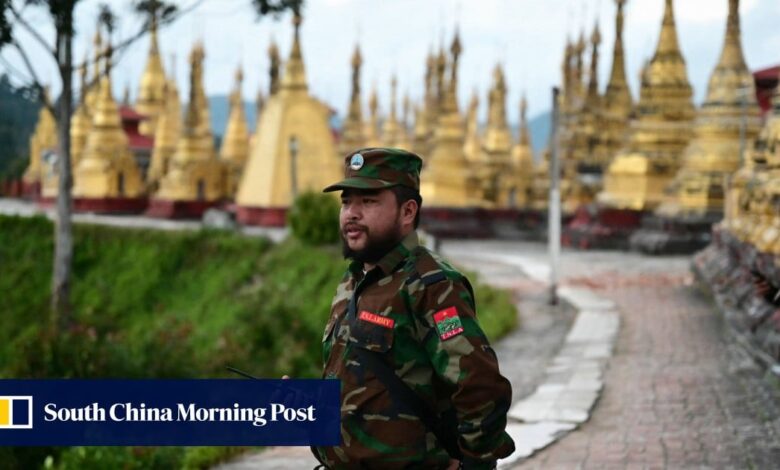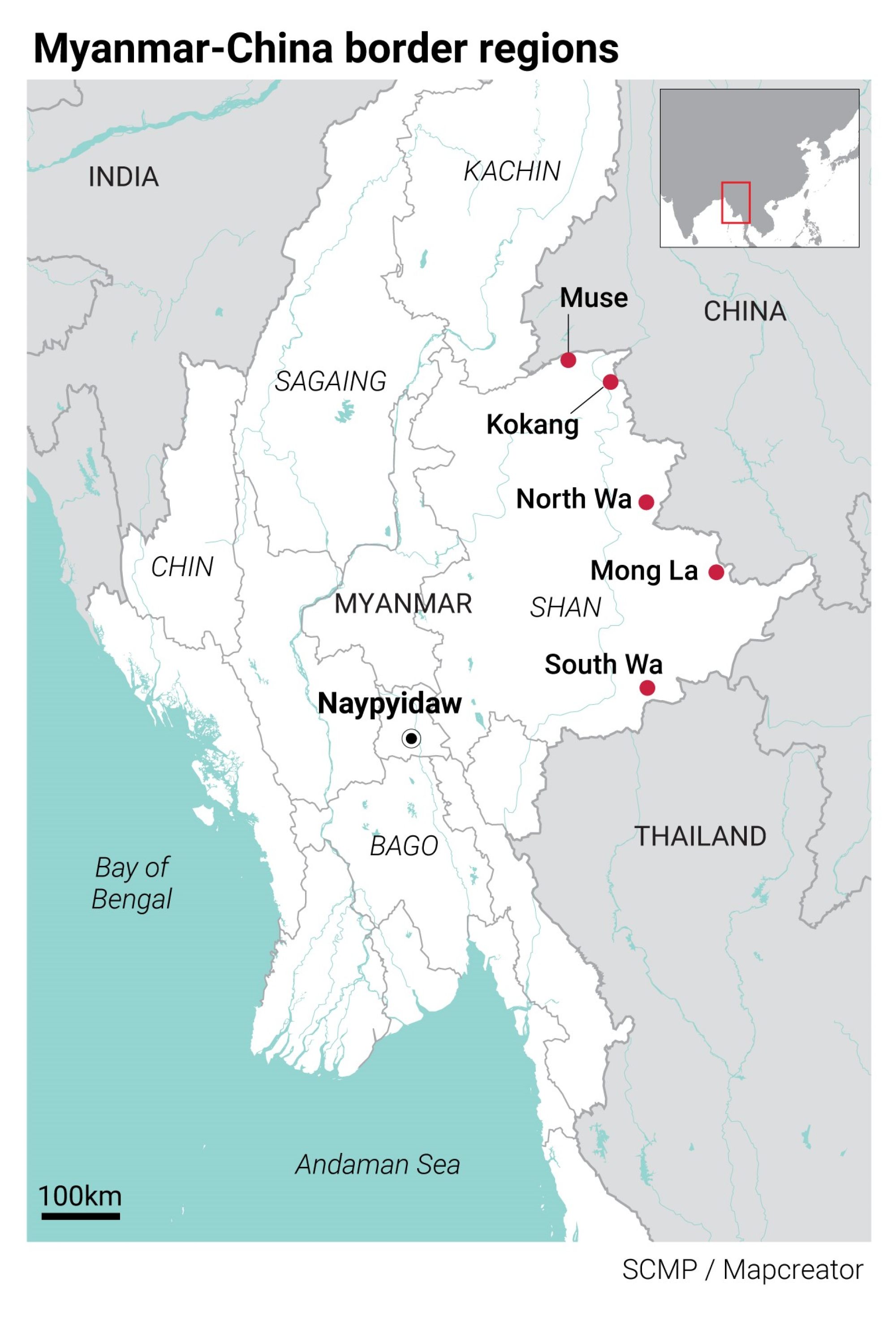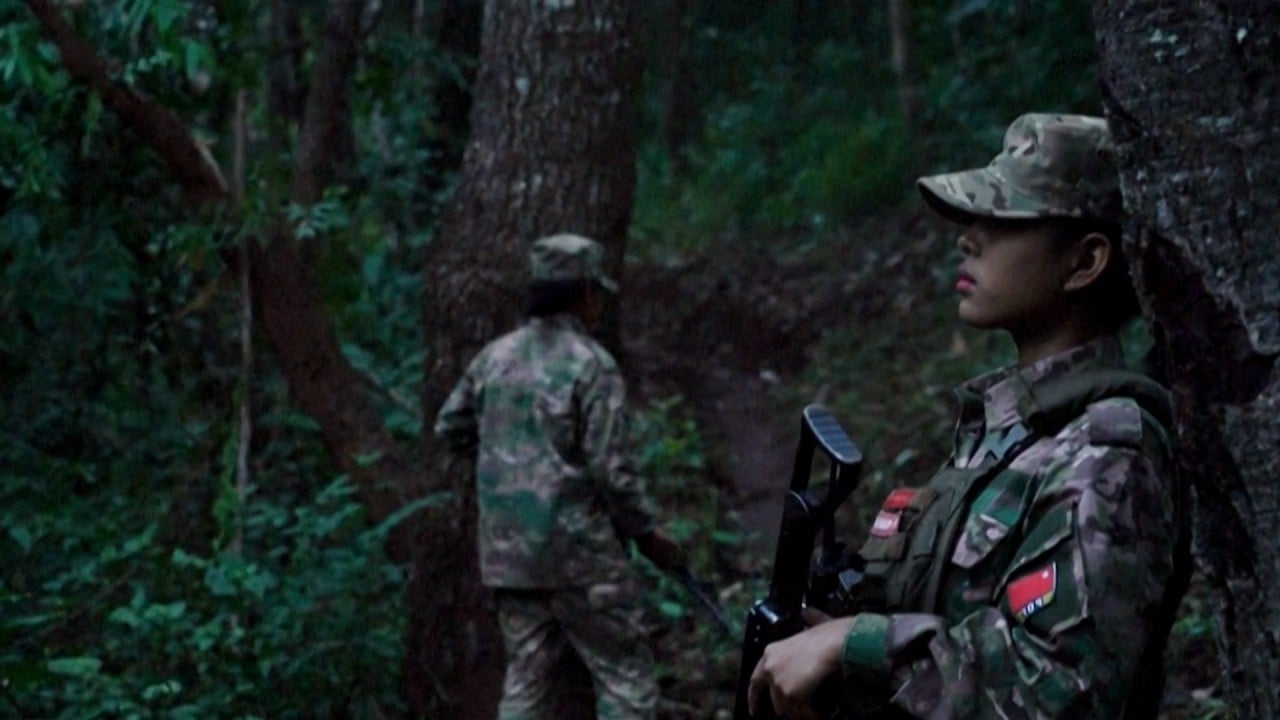China brokers Myanmar ceasefire, urges junta and rebel militia to ‘exercise maximum restraint’

“The two sides agreed to an immediate ceasefire, … to disengage military personnel, to resolve relevant disputes and claims through peaceful negotiations, to commit themselves not to jeopardise the safety of the people in the Chinese border and personnel in the Chinese projects in Myanmar,” Mao said.
Mao urged the two sides to “earnestly implement the ceasefire agreement reached, exercise maximum restraint, continue to resolve the issues through dialogue and consultation, and jointly promote progress in the peace process in northern Myanmar”.
China, meanwhile, would “continue to provide support and assistance within its capacity and to play a constructive role in this regard”.
Myanmese news portal The Irrawaddy quoted a source as saying the peace deal took effect on Thursday night.
An anonymous TNLA leader told Reuters that the latest talks – the third round since December – were facilitated by Deng Xijun, China’s special envoy for Asian affairs.
“From the [alliance’s] side, the agreement is to refrain from offensive attacks on enemy camps or towns. From the military side, the agreement is not to engage in attacks through air strikes, bombardment, or heavy weapons,” the leader, who declined to be named due to the sensitivity of the issue, told Reuters.
This included a major trade zone near the town of Muse, which handles about 90 per cent of Myanmar’s cross-border trade with China.

A second round of talks fell apart in late December. The ethnic militias then ramped up their offensive and took control of Laukkai, capital of Shan’s self-administered Kokang special autonomous zone, prompting the Chinese embassy to issue an evacuation advisory for its nationals.
Beijing maintains close ties with both the junta and ethnic groups in the north, and has been cautious to prevent a spillover of the conflict, which could also put its substantial infrastructure investment in Myanmar at risk.
Several of these projects are located in Shan state, where the Three Brotherhood Alliance has made major territorial gains since launching its operation against the military government in October.
China and Myanmar vow to maintain border security as rebels claim victory
China and Myanmar vow to maintain border security as rebels claim victory
According to ISP-Myanmar, a non-governmental think tank, the alliance had full control over at least six Chinese project locations and partial control over another seven as of late December.
Days later, Chinese foreign vice-minister Sun Weidong visited Myanmar, where he discussed border security with junta leader Min Aung Hlaing.






